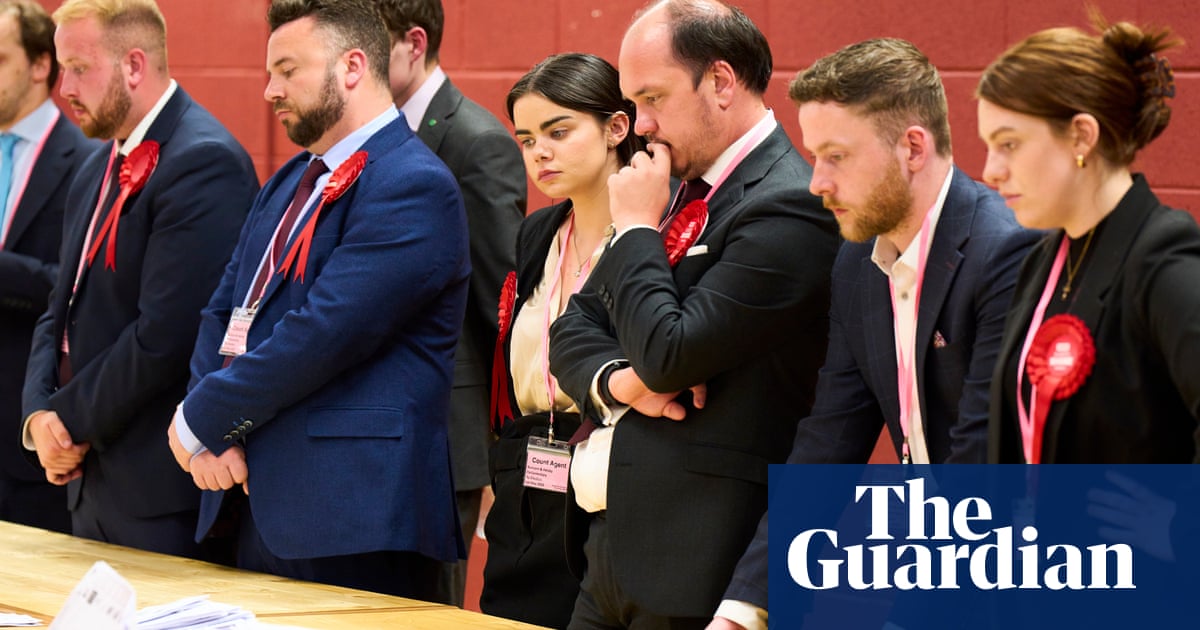Keir Starmer is under fire from Labour MPs after losing his first byelection in government toNigel Farage’s party by just six votes.
Backbenchers have accused the prime minister and his team of complacency about theRuncorn and Helsby contestand questioned why he did not visit the seat during the campaign.
One seniorLabourMP said: “I was quite shocked at how complacent the campaign was, especially in Runcorn but nationally as well.
“Everyone seemed convinced we were going to win by a reasonably comfortable margin. The NHS message does not work against Farage, but the centre wouldn’t hear it, or the fact that Keir’s unpopularity was brought up on almost every door.”
The result has triggered fresh criticism of the government’s decision to implementcuts to winter fuel allowanceanddisability benefitsduring its first months in government.
It has also thrown the spotlight on Starmer’s popularity ratings, whichplummeted after the general electionin July.
A second Labour MP said: “The boys in No 10 should spend less time briefing about who’s driving the train, and more time actually getting on with building the tracks.”
The same MP added: “People haven’t felt the change we promised and they are fed up after 14 years of a hard time under the Tories. They will start looking for answers elsewhere. I worry we are taking the people we built the party to represent – the working class – for granted. We were elected to fix public services and raise living standards and we’ve really got to start doing that.”
A third Labour MP said: “It’s all very well for No 10 to say we’ve got to keep delivering. The problem is that it’s the stuff we’ve delivered that people hate.”
Farage hailed a “big moment” in British politics after Reform UK won the Runcorn and Helsby byelection. Its paper-thin victory, the smallest majority at a parliamentary byelection since the end of the second world war, wasconfirmed overnight after a recount.
Neither Starmer nor Kemi Badenoch, the Conservative leader, visited the constituency during the campaign.
The prime minister admitted the result was “disappointing” and told reporters on Friday: “My response is we get it. We were elected in last year to bring about change.” He vowed to go “further and faster” in delivering it.
A government source said that while “everyone knew it was super-close”, Labour figures believed they would win it because “the last 10 days or so the [canvassing] returns were quite good”.
“You have to keep telling yourself that Reform doesn’t necessarily show up in the data,” the source said. “You end up with a big chunk of non-voters [who] aren’t contactable and don’t show up in polling.”
Another government source conceded it had been a “very strong result” for Reform but argued that the circumstances of the byelection made it very difficult for Labour. It was triggered after the incumbent Labour MPMike Amesbury violently assaulted a constituentin a drunken late-night row.
“You cause a byelection like that, and people are going to be pissed off about having to go out and vote,” the source said.
One Green party campaigner who knocked on doors in Runcorn and for council elections in Lancashire said they picked up unprecedented levels of dislike for Labour – and particularly for Starmer.
“In Runcorn, the Labour message was, ‘Vote Labour or get Nigel Farage’, and quite a lot of people seemed to go, ‘OK, I’ll take Farage’. I’ve been doing this for a decade and I’ve never seen this level of dislike for Labour, particularly from people who were willing to give them a chance last year and feel they were given false hope,” the activist said.
“One man chased me down a path yelling, ‘Are you Labour?’ When I told him I was a Green he calmed down.”
MPs on the Labour left publicly criticised Starmer and said his government’s agenda was to blame for the defeat. Brian Leishman, who represents Alloa and Grangemouth, posted on X that “the first 10 months haven’t been good enough or what the people want”. Kim Johnson, who represents Liverpool Riverside, said that if Labour did not offer “bold, hopeful policies that rebuild trust, the far right will”.
Loyalist Labour MPs said their party should not be obsessing about the politics of the next election when it has a huge majority and four years left in this parliament, and should instead be focusing on good policy. “Stay cool, colleagues. We have a gigantic majority and acres of time before the next election,” one said.
